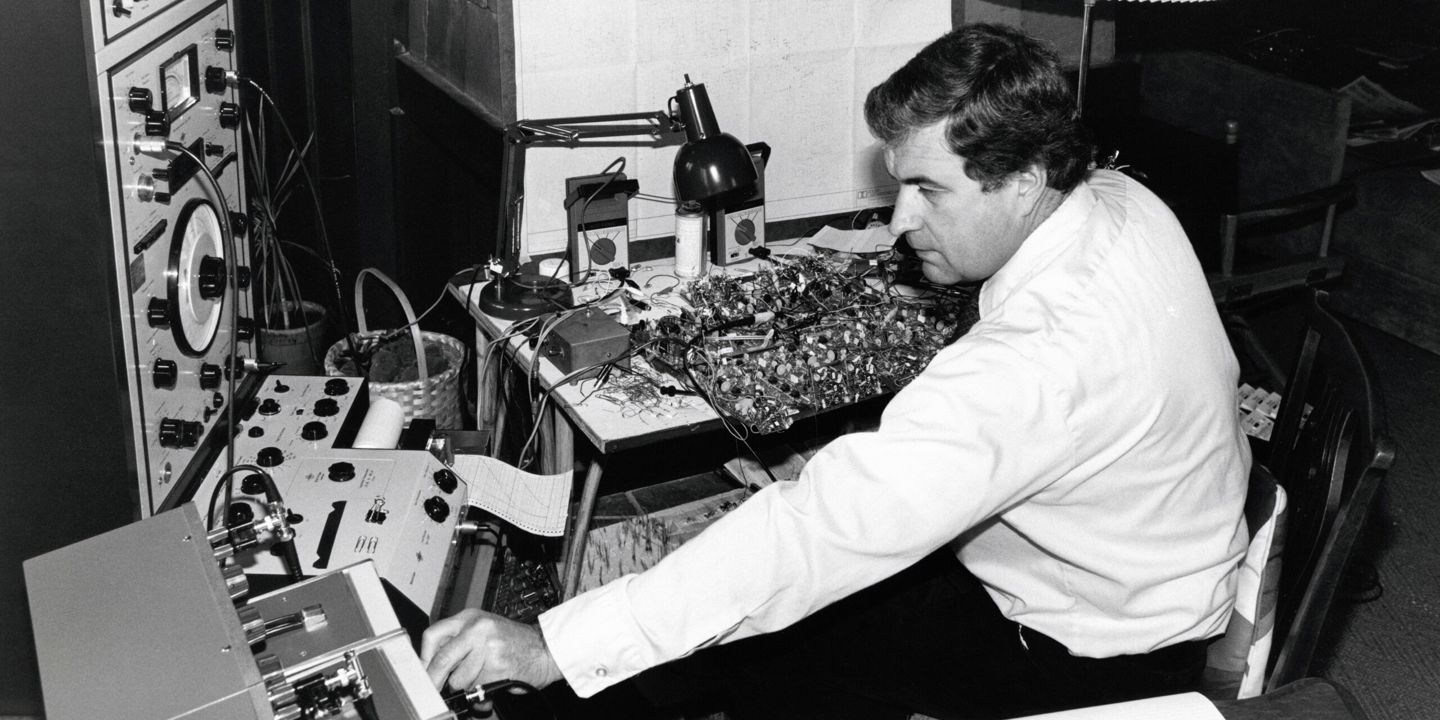FOUNDER
The power of sound
When Ray Dolby founded Dolby Laboratories in 1965, movies and television featured only one channel of sound, and record producers were limited to a handful of audio tracks. Much of what happened since then to improve the sound of entertainment can be traced to the efforts of Ray Dolby — not just his technical innovations but the impact they had on artists.
"Dolby's work changed the way movies were made," said director Philip Kaufman, "because sound became a powerful artistic element, and you could do things with sound that had never been done before."
A deep-rooted curiosity
Ray Dolby was born in Portland, Oregon, in 1933 and later moved to the San Francisco Bay Area. From 1949 to 1957, he worked on various audio and instrumentation projects at Ampex Corporation, where he led the development of the electronic aspects of the Ampex® videotape recording system. In 1957, he graduated from Stanford University and left for England on a Marshall Scholarship to continue his studies at Cambridge University. He received a PhD in physics from Cambridge in 1961.
Dolby had a desire to explore the unknown, a quality he shared with the artists who later embraced his technologies.
"To be an inventor, you have to be willing to live with a sense of uncertainty, to work in this darkness and grope towards an answer, to put up with anxiety about whether there is an answer."
RAY DOLBY
{{ currentIndex }}
/
{{ pagesCountIndex }}
"Ray's pioneering work in sound played a pivotal role in allowing Star Wars to be the truly immersive experience I had always dreamed it would be."
GEORGE LUCAS, DIRECTOR
Pushing the limits
In his lifetime, Dolby would earn more than 50 US patents, and his company would flourish as a place where scientists and engineers push the limits of sight and sound. Since 1965, thousands of films and billions of products have featured Dolby® technologies.
Ray Dolby died on September 12, 2013, in San Francisco at the age of 80.
Awards and honors
Awards and honors Ray Dolby received include:
- The Ray Dolby Gateway to American Culture at the Smithsonian Museum honors Ray Dolby for his innovations and global contributions to the way the world experiences audio and video entertainment (2018)
- San Francisco Film Society George Gund III Award (2013)
- Berlin Film Festival Berlinale Camera Award (2012)
- Institute of Electrical and Electronics Engineers (IEEE) Edison Medal (2010)
- Several Emmys® from the National Academy of Television Arts and Sciences, including for the invention of the Ampex videotape recorder and his work for Dolby Laboratories (1989, 2005)
- Honorary Doctorate from the University of York (1999)
- Honorary Doctorate of Science from Cambridge University (1997)
- The National Medal of Technology from President Clinton (1997)
- Grammy® from the National Academy of Recording Arts and Sciences (1995)
- Audio Engineering Society (AES) Silver (1971) and Gold (1992) Medals
- Oscar® statuette from the Academy of Motion Picture Arts and Sciences (1989)
- Honorary Officer of the Order of the British Empire (OBE) by Queen Elizabeth II (1987)
- Oscar Class II (plaque) from A.M.P.A.S. (1979)
